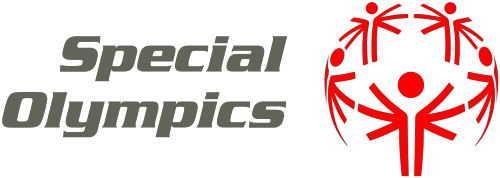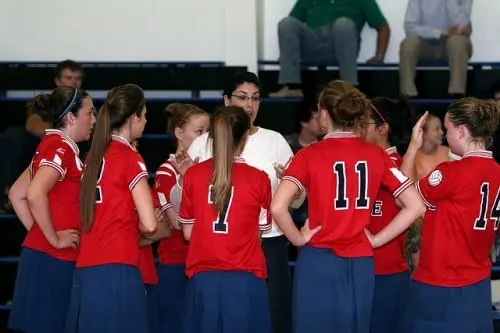Special Olympics Volleyball: Empowering Athletes Through the Joy of Sport

The Special Olympics, founded in 1968 by Eunice Kennedy Shriver, is a global movement that transcends the boundaries of sport. It is dedicated to providing year round sports training and athletic competition in a variety of Olympic type sports for children and adults with intellectual disabilities.
The goal is not just to develop physical fitness but to cultivate courage, experience joy and participate in a sharing of gifts, skills and friendship.
Volleyball, with its fast paced, dynamic nature, is one of the many sports included in the Special Olympics. It is a sport that demands coordination, communication and teamwork. All skills that are crucial for personal development and social interaction.
For athletes in the Special Olympics, volleyball is more than just a game; it is an opportunity to challenge perceptions, break down barriers and inspire communities.
The Structure of Special Olympics Volleyball
Special Olympics Volleyball is structured to accommodate athletes of all ability levels. The competition is typically divided into two main categories: traditional volleyball and Unified Sports volleyball.
Traditional Volleyball
In this category, teams are composed entirely of athletes with intellectual disabilities. The focus is on skill development, team collaboration and competition. Teams are grouped by ability level to ensure that all athletes have a fair and competitive experience.
The games are played with the same rules as those used in standard volleyball, though modifications can be made to suit the needs of the participants.
Unified Sports Volleyball
Unified Sports is a unique initiative that brings together athletes with and without intellectual disabilities on the same team. This inclusive approach fosters mutual understanding, respect and friendship. In Unified Volleyball, teams are composed of an equal number of athletes with intellectual disabilities (called Unified athletes) and those without (called Unified partners).
The inclusive nature of Unified Sports volleyball not only enhances the sporting experience but also promotes social inclusion and breaks down the walls of misunderstanding and prejudice.
The Impact of Volleyball on Athletes
Participation in Special Olympics Volleyball has a profound impact on the athletes involved. The sport offers numerous physical, social and emotional benefits that extend beyond the volleyball court.
Physical Development
Volleyball is a physically demanding sport that enhances cardiovascular health, improves hand eye coordination and strengthens muscles. For Special Olympics athletes, regular volleyball training contributes to overall physical well being. The sport also encourages a healthy lifestyle, which can lead to improved long term health outcomes for individuals with intellectual disabilities.
Skill Acquisition and Mastery
Volleyball requires the development of various motor skills, including serving, spiking, blocking and setting. Through consistent practice and competition, athletes in the Special Olympics refine these skills, gaining a sense of achievement and mastery. This process of skill acquisition builds confidence and self esteem, empowering athletes to take on new challenges both on and off the court.
Social Interaction and Teamwork
Volleyball is inherently a team sport and success on the court is often the result of effective communication and collaboration. For athletes in the Special Olympics, playing volleyball fosters a sense of belonging and camaraderie. They learn the importance of teamwork, mutual support and sportsmanship. Values that translate into everyday life and enhance social interactions.
Emotional and Psychological Benefits
The sense of accomplishment that comes from learning new skills, working with teammates and competing in a supportive environment contributes to emotional well being. Special Olympics athletes often experience increased self confidence, reduced anxiety and a greater sense of purpose through their participation in volleyball. The sport also provides a positive outlet for energy and emotions, helping athletes manage stress and build resilience.
Inclusion and Advocacy
Through volleyball, athletes become advocates for inclusion, demonstrating their capabilities and challenging societal stereotypes. The visibility and success of Special Olympics athletes on the volleyball court help shift perceptions and inspire broader social change. As they compete and excel, they showcase the value of diversity and the importance of creating inclusive communities.
Stories of Success and Inspiration
The impact of Special Olympics Volleyball can be seen in the countless success stories of athletes who have overcome challenges and achieved greatness through the sport.
One such story is that of a young athlete who joined the Special Olympics after struggling with social isolation and low self-esteem. Through volleyball, he found a sense of purpose and belonging. The support of his teammates and coaches helped him develop his skills and he eventually became a key player on his team.
The confidence he gained on the court translated into other areas of his life, leading to improved academic performance and stronger relationships with family and friends.
Another inspiring story comes from a Unified Sports® volleyball team that competed at the national level. The team, composed of athletes with and without intellectual disabilities, exemplified the power of inclusion. Their success on the court was not just measured in wins and losses but in the friendships formed and the mutual respect fostered among teammates.
Their journey highlighted the importance of breaking down barriers and working together to achieve common goals.

The Role of Coaches and Volunteers
Coaches and volunteers play a crucial role in the success of Special Olympics Volleyball. They are not only responsible for teaching the technical aspects of the game but also for fostering an environment of support, encouragement and inclusion.
Coaches often go above and beyond to ensure that each athlete reaches their full potential. They adapt training sessions to meet the individual needs of athletes, provide positive reinforcement and serve as mentors and role models. Volunteers, too, are integral to the program, offering their time and energy to support events, assist with logistics and cheer on the athletes.
The dedication of coaches and volunteers is often cited by athletes and their families as a key factor in the positive experiences associated with Special Olympics Volleyball. Their commitment helps create a nurturing environment where athletes can thrive.
Conclusion
Special Olympics Volleyball is more than just a sport; it is a powerful tool for empowerment, inclusion and personal growth. For athletes with intellectual disabilities, volleyball offers a unique opportunity to develop physical skills, build self confidence and form meaningful social connections.
Through the Special Olympics, volleyball becomes a platform for athletes to challenge themselves, overcome obstacles and inspire others. The impact of Special Olympics Volleyball extends far beyond the court, touching the lives of athletes, their families and their communities and paving the way for a more inclusive and understanding world.


